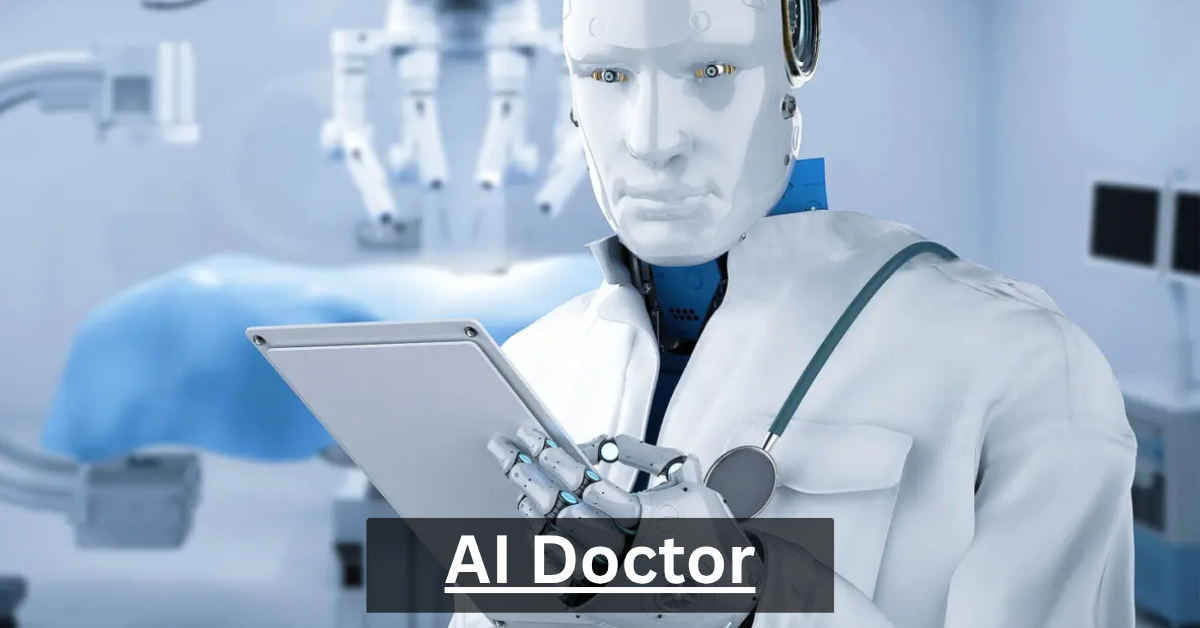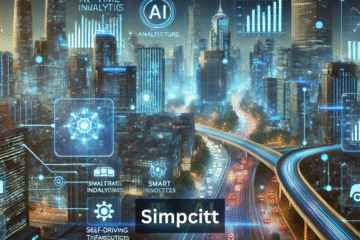The digital revolution in healthcare has accelerated like never before, and leading the charge is the AI Doctor. This isn’t science fiction—it’s today’s reality. From busy emergency rooms to rural clinics, AI-powered medical assistants are transforming how care is delivered, making it more accessible, affordable, and accurate than ever.
Thanks to advancements in Machine Learning, Natural Language Processing (NLP), and Health Information Technology (HIT), AI Doctors are redefining what it means to receive care. The combination of technology and compassion through smart interfaces allows hospitals and clinics to operate efficiently while providing real-time patient support 24/7.
What is an AI Doctor?
An AI Doctor is a virtual health assistant designed to replicate the essential functions of human doctors. Using vast datasets, clinical algorithms, and Diagnostic AI, it provides health assessments, medication guidance, and appointment scheduling, all within a conversational interface.
These AI healthcare chatbots are integrated into mobile apps, websites, and hospital kiosks, making them a convenient tool for patients and medical institutions alike. Far from replacing human doctors, they act as intelligent health chatbots, streamlining basic medical services and freeing up professionals for more complex tasks.
How AI Doctors Are Transforming Patient Care
Imagine having a 24/7 AI doctor at your fingertips—one that never sleeps, never takes a break, and always listens. From symptom checking to triage assistance, these tools offer fast and reliable responses to patients seeking help.
Patients no longer need to wait in crowded clinics for basic inquiries. Whether it’s managing chronic illnesses or answering questions about potential drug interactions, AI medical assistants provide timely, data-driven solutions that improve outcomes and reduce stress—for both patients and providers.
Doctor AI: Your 24/7 Virtual Healthcare Companion
In today’s fast-paced world, Doctor AI is emerging as a revolutionary force in modern medicine, offering round-the-clock support that traditional healthcare systems often struggle to provide. Whether it’s managing prescriptions, answering urgent health questions, or scheduling follow-up appointments, Doctor AI acts as a reliable, intelligent assistant that enhances both patient experience and hospital efficiency. Its ability to deliver personalized care at scale not only reduces the burden on medical staff but also ensures that patients receive timely and accurate health guidance—anytime, anywhere.
Key Features of AI Doctor Chatbots
24/7 Patient Support
The standout feature of any AI health assistant is its round-the-clock availability. No appointments, no hold music—just instant access to care, whether it’s midnight or Monday morning.
Appointment Scheduling Automation
By integrating with hospital automation tools, AI doctors act as smart appointment scheduling chatbots. Patients are directed to the right specialist at the right time, streamlining hospital operations and eliminating confusion.
Symptom Assessment
Using predictive diagnostics and symptom databases, AI triage assistants can assess user-reported symptoms and recommend next steps. They even flag critical symptoms that require immediate medical attention.
Medication Guidance
Need help understanding your prescription? AI doctor apps provide personalized advice, including dosage reminders, drug interaction alerts, and guidelines for managing side effects—especially useful for conditions like diabetes or hypertension.
Health Education Resources
Beyond diagnosis and scheduling, AI Doctors serve as educators. They provide tailored health tips, wellness plans, and even mental health support, making them a well-rounded digital health assistant.
AI Doctor vs. Traditional Medical Assistance: A Comparative Look
Traditional doctors are irreplaceable for complex diagnoses and surgeries, but even the best human practitioner has limitations—availability, fatigue, and administrative burdens. Enter the AI Doctor, which offers scalable, lightning-fast, and always-on support.
While a traditional consultation may take days to schedule, an AI-based medical consultation is instant. For non-critical care and triage, AI wins on speed, accuracy, and convenience, giving patients more control over their health.
Integration with Hospital Systems and EHR
AI Doctors can connect seamlessly with Electronic Health Records (EHR). This allows for EHR-integrated chatbot functionality—accessing patient history, test results, and prescription data in real-time. The result? A smarter consultation that knows your medical past.
All data is managed securely, in compliance with HIPAA and other privacy standards, ensuring trust and transparency in the virtual healthcare system.
AI-Powered Symptom Assessment and Triage
Patients can describe their symptoms through voice or text, and symptom checker AI evaluates them using advanced algorithms. It then offers likely conditions and a recommended course of action.
For instance, a patient describing chest pain may be advised to see a specialist immediately, while a case of fatigue could be attributed to stress. These quick decisions reduce ER overload and provide peace of mind.
Personalized Medication Management Using AI Doctor
With AI-powered health solutions, managing medication has never been easier. Whether it’s setting up reminders or identifying potential drug interactions, patients can rely on their AI hospital assistant for safe, accurate advice.
These tools are especially valuable for chronic illness monitoring. An AI Doctor can alert diabetic patients to check their sugar levels or remind hypertensive individuals about pill timing—significantly improving adherence.
Enhancing Hospital Operations Through Automation
Hospital front desks are often chaotic. AI Doctors act as automated medical assistants, handling routine queries and appointment bookings, thus reducing wait times and improving resource allocation.
By digitizing these touchpoints, hospitals can free staff for critical tasks while patients enjoy faster service—a win-win scenario that boosts operational efficiency.
Health Education and Patient Engagement with AI
Conversational AI in medicine is also a powerful tool for engagement. Patients receive preventive care tips, nutrition plans, and even mental wellness exercises, all through the chatbot interface.
The AI patient interface allows for continuous education, building awareness and empowering users to take charge of their well-being.
Popular AI Doctor Platforms in 2025
K Health
Offers AI-driven consultations using millions of anonymized health records to deliver reliable guidance.
Ada Health
One of the most advanced medical AI chatbots, known for its deep symptom analysis and user-friendly interface.
Babylon Health
A pioneer in AI telemedicine software, Babylon provides both AI consultations and live video calls with doctors.
Google Health AI
Through Google Health AI, patients get cutting-edge tools backed by the power of big data and cloud infrastructure.
Other Tools
Don’t overlook WebMD Symptom Checker, Doctolib AI, SkinVision (AI for dermatology), and IBM Watson Health. Each brings unique features to the table, enhancing AI-driven care.
Challenges and Limitations of AI in Healthcare
Despite their advantages, AI Doctors are not without risks. Ethical concerns, misdiagnosis, and over-reliance on algorithms are genuine threats.
To overcome these, human oversight and regulatory compliance are essential. Medical AI must work with, not instead of, human professionals—ensuring accountability and accuracy at every step.
The Future of AI Doctors: What’s Next?
As AI continues to evolve, expect wearable device integration, predictive diagnostics, and broader access in rural areas. AI Doctors will likely support telehealth platforms in underserved communities, ensuring that everyone, everywhere, receives quality care.
These innovations are not distant dreams—they’re already in development, promising a smarter, more connected future for global healthcare.
Real-World Case Studies: Hospitals Using AI Doctors
Mayo Clinic AI integration has enhanced diagnostic accuracy and reduced administrative loads. In Europe, Babylon Health has improved access to care for thousands, while ChatGPT for Healthcare is being piloted in multiple hospital systems for medical content generation and automated patient education.
Early data shows that AI health assistants increase patient satisfaction, reduce costs, and streamline hospital operations—making the case for mass adoption even stronger.
Conclusion
AI Doctors are more than a trend—they’re a necessary evolution in modern medicine. They offer scalability, personalization, and 24/7 support, solving many of the challenges faced by overburdened healthcare systems.
From appointment scheduling to diagnostic support, these tools empower both patients and providers. The future of healthcare is intelligent, compassionate, and powered by AI—and it’s already here.
Frequently Asked Questions
Is an AI Doctor safe to use for medical advice?
Yes, most AI Doctors follow strict protocols, use machine learning from vetted data, and adhere to HIPAA compliance for privacy and safety.
Can AI Doctors replace human doctors?
No. They assist with basic tasks but require human oversight for complex cases, surgeries, or emergencies.
Are AI healthcare chatbots free to use?
Many platforms offer free versions (like WebMD Symptom Checker or Ada Health), while others offer premium features via apps.
How accurate are AI symptom checkers?
Tools like Babylon Health and K Health are highly accurate, especially for non-emergency symptoms, but always consult a human doctor when in doubt.
Do AI Doctors work with hospital records?
Yes, most modern tools are EHR-integrated, allowing them to access patient history for more personalized care.
Stay in touch to get more updates & alerts on Erome! Thank you



